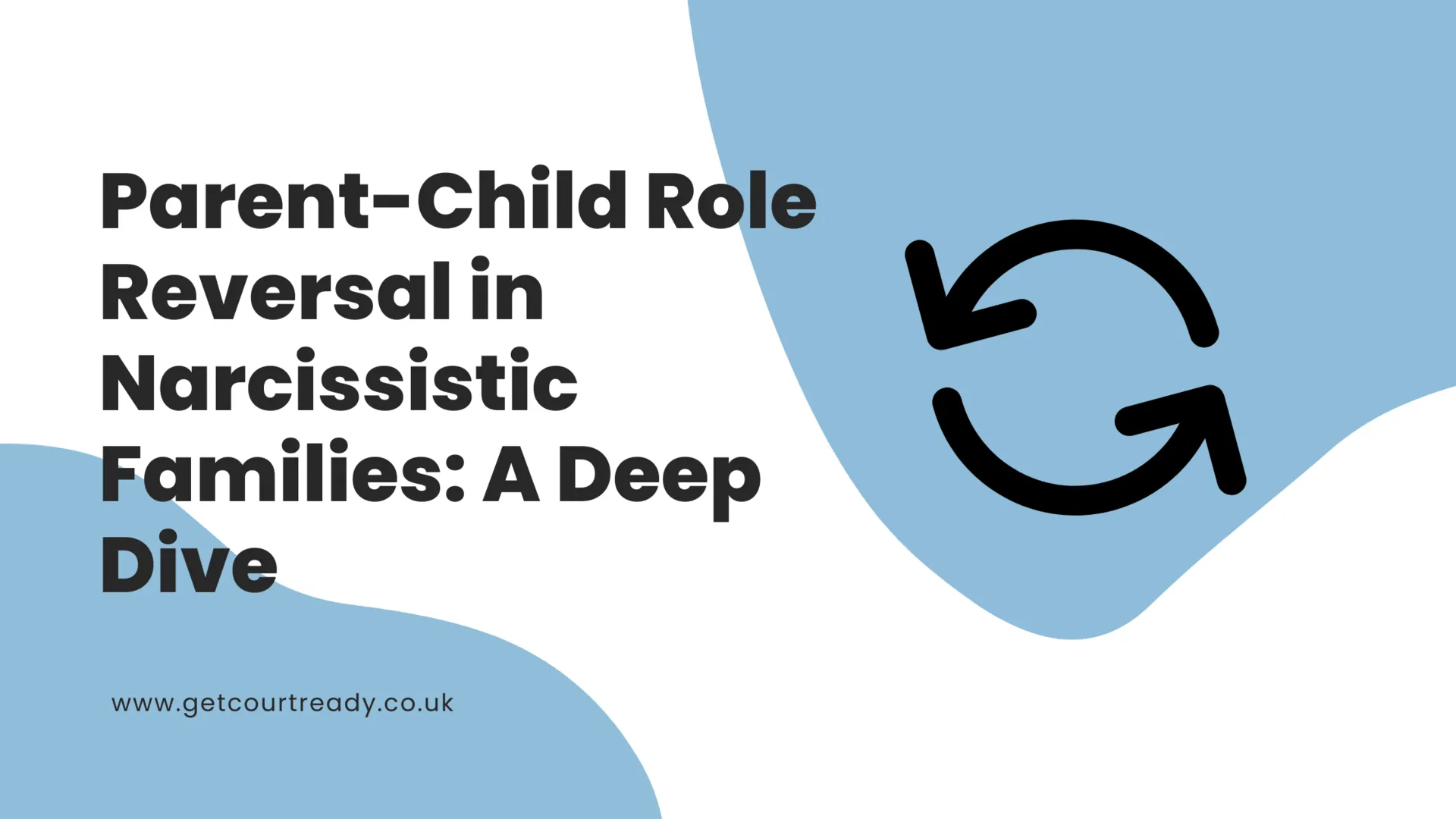Introduction
Parent-child role reversal, also known as parentification, is a complex psychological phenomenon where a child assumes the role of a parent to their own parent or sibling. This dynamic is particularly prevalent within narcissistic families, where the narcissistic parent manipulates the child into fulfilling their unmet emotional or physical needs.
Understanding Narcissistic Families
In a narcissistic family, the family dynamics are organised around the preservation of the narcissistic parent’s image and needs. These families often portray a picture-perfect image to the outside world, while the reality within the home is much different. The narcissistic parent might be self-absorbed, excessively critical, or emotionally unavailable, forcing the child to step into the role of the caregiver.
The Role Reversal
In the role reversal, the child becomes the “parentified child”. They are expected to take care of their parent’s emotional well-being, often at the expense of their own needs and development. This can involve providing emotional support, taking on excessive household responsibilities, or even acting as a mediator in parental conflicts.
The Impact on the Child
The effects of parentification are profound and long-lasting. The parentified child may struggle with boundaries, have difficulty in forming healthy relationships, and grapple with feelings of guilt and responsibility. They may also experience a loss of childhood, as they are forced to mature and take on responsibilities far beyond their years.
Role Reversal and Parental Alienation
Narcissists (or other cluster b personality disordered parents) use this role-reversal dynamic to psychologically manipulate the child into rejecting the other parent because their presence causes the narcissist to feel anxious and inadequate. Over a period of time, the child's authentic experiences are distorted so that they believe the narcissist to be all good and the other parent to be all bad. This leads to the child alienating themselves from a loving parent to please the narcissistic parent, believing that they are making this choice for their own well-being. I explain how this happens in more detail in our HOW NARCISSISTS ACHIEVE THE ROLE REVERSAL RELATIONSHIP - PARENTAL ALIENATION video.
Difficulties in Diagnosing
Diagnosing role reversal relationships, particularly in the context of parentification, can be challenging due to several reasons:
Lack of Awareness: Many people, including the individuals involved, may not be aware that a role reversal has occurred. They may see the situation as normal or necessary due to their family dynamics.
Secrecy and Denial: Narcissistic families often portray a perfect image to the outside world, making it difficult for outsiders to recognise the dysfunction within. The parentified child might also deny the role reversal to protect the parent or the family image.
Complex Emotions: The parentified child may experience a mix of emotions such as guilt, resentment, and loyalty towards the parent, which can complicate the diagnosis.
Lack of Professional Recognition: Not all professionals are familiar with the concept of parentification and its impact, which can lead to misdiagnosis or underdiagnosis.
Absence of Clear Diagnostic Criteria: There are no specific diagnostic criteria for parentification in diagnostic manuals, making it a largely subjective and interpretive process. However, it can be part of the Shared Persecutory Delusion diagnosis which is within the DSM V.
Overlap with Other Issues: The effects of parentification can overlap with symptoms of other psychological issues such as anxiety, depression, or post-traumatic stress disorder (PTSD), making it difficult to identify the root cause.
DARVO: Many narcissists use the Deny, Attack and Reverse Offender tactic to deflect attention away from their own behaviours and onto the victim parent. This can include false allegations such as domestic abuse and parental alienation.
Healing and Recovery
Healing from the effects of parentification involves recognising the role reversal, understanding its impact, and seeking professional help. Therapy can provide a safe space to explore these issues and develop healthier coping mechanisms. Support groups can also offer solace and understanding from others who have experienced similar situations.
Conclusion
Parent-child role reversal in narcissistic families is a complex issue that can have lasting effects. However, with awareness, understanding, and professional help, individuals can heal from its impacts and build healthier, more fulfilling relationships.
Remember, it’s okay to seek help and prioritise your own well-being. If you or someone you know is struggling with the effects of parentification, consider reaching out to a mental health professional.
Disclaimer: This article is intended for informational purposes only and does not substitute for professional advice. If you or someone else is in need of help, please contact a mental health professional (www.thenurturingcoach.co.uk has expertise in this area). If you experiencing this in the court process and would like to discuss strategy, please book a free 20 minute consultation to see how we can support you.
1. What is parent-child role reversal?
It's a dynamic where a child assumes the role of a parent to their own parent or sibling, often due to the manipulative behaviour of a narcissistic parent.
2. How does narcissism in a parent lead to role reversal?
Narcissistic parents may manipulate their children into fulfilling their unmet emotional or physical needs, causing the child to take on the caregiver role.
3. What are the signs of parent-child role reversal?
Signs include a child providing emotional support, taking on household responsibilities, or acting as a mediator in parental conflicts.
4. What impact does role reversal have on a child?
The child may struggle with boundaries, have difficulty forming healthy relationships, and experience feelings of guilt and responsibility.
5. Can role reversal contribute to parental alienation?
Yes, narcissistic parents may use this dynamic to manipulate the child into rejecting the other parent, leading to alienation.
6. Why is diagnosing role reversal relationships challenging?
Lack of awareness and normalisation of the situation within the family can make it difficult to recognise that a role reversal has occurred.
7. What can be done to help children in role-reversed relationships?
Professional counselling, support groups, and educational materials can provide support and strategies for coping and recovery.
